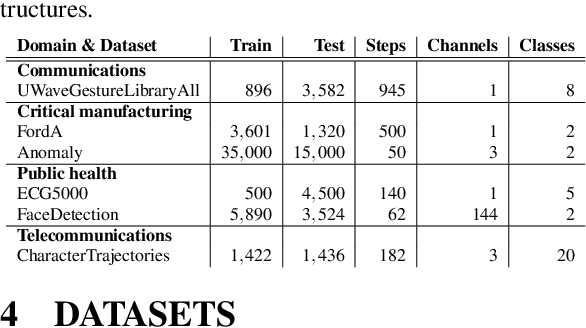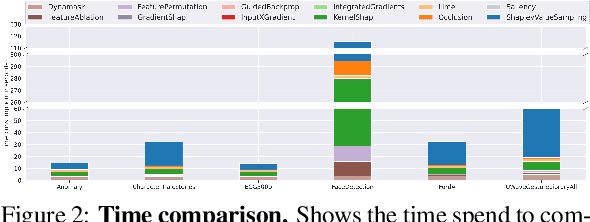Time to Focus: A Comprehensive Benchmark Using Time Series Attribution Methods
Paper and Code
Feb 08, 2022



In the last decade neural network have made huge impact both in industry and research due to their ability to extract meaningful features from imprecise or complex data, and by achieving super human performance in several domains. However, due to the lack of transparency the use of these networks is hampered in the areas with safety critical areas. In safety-critical areas, this is necessary by law. Recently several methods have been proposed to uncover this black box by providing interpreation of predictions made by these models. The paper focuses on time series analysis and benchmark several state-of-the-art attribution methods which compute explanations for convolutional classifiers. The presented experiments involve gradient-based and perturbation-based attribution methods. A detailed analysis shows that perturbation-based approaches are superior concerning the Sensitivity and occlusion game. These methods tend to produce explanations with higher continuity. Contrarily, the gradient-based techniques are superb in runtime and Infidelity. In addition, a validation the dependence of the methods on the trained model, feasible application domains, and individual characteristics is attached. The findings accentuate that choosing the best-suited attribution method is strongly correlated with the desired use case. Neither category of attribution methods nor a single approach has shown outstanding performance across all aspects.
 Add to Chrome
Add to Chrome Add to Firefox
Add to Firefox Add to Edge
Add to Edge